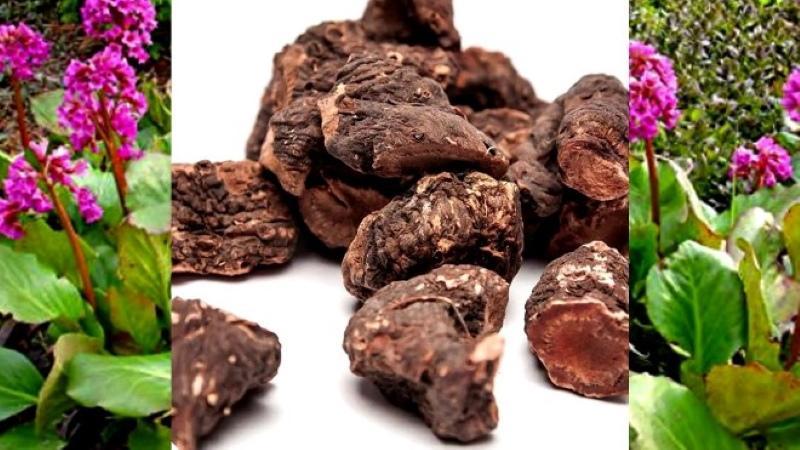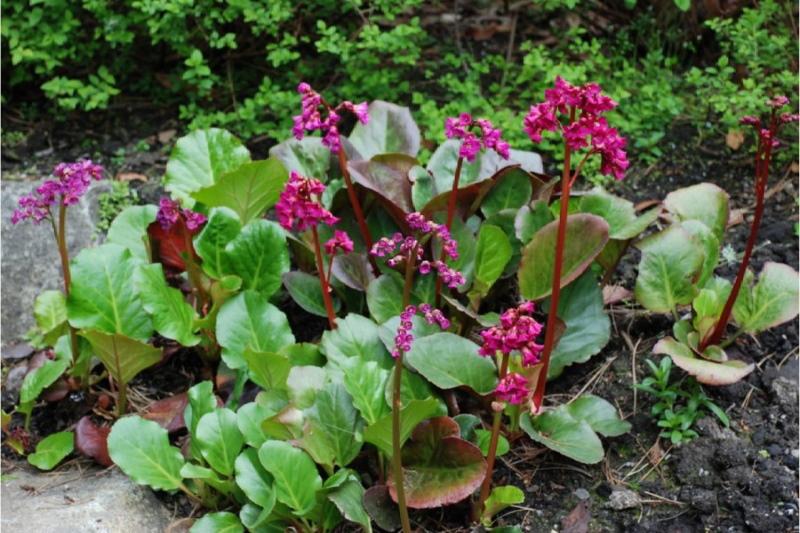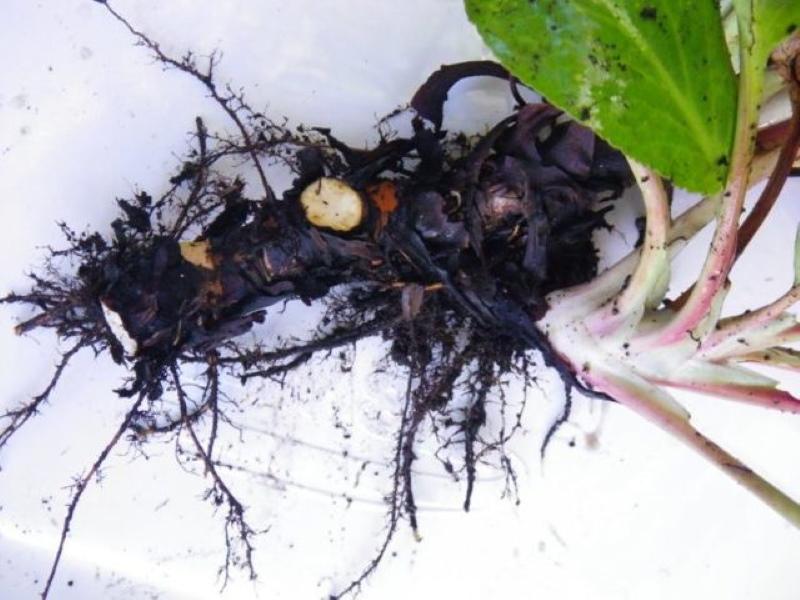It should be in every home medicine cabinet - badan root, medicinal properties and contraindications
 Badan is often planted in flower beds due to its beautiful wide leaves, similar to wavy shiny umbrellas, and gentle flowering. However, its real value is not pink-lilac inflorescences, but thick long rhizomes. Badan root, medicinal properties and contraindications of this remedy are widely used to relieve various types of inflammatory processes. Branched roots are high in antioxidants and many other nutrients.
Badan is often planted in flower beds due to its beautiful wide leaves, similar to wavy shiny umbrellas, and gentle flowering. However, its real value is not pink-lilac inflorescences, but thick long rhizomes. Badan root, medicinal properties and contraindications of this remedy are widely used to relieve various types of inflammatory processes. Branched roots are high in antioxidants and many other nutrients.
You can buy dried badan rhizome in every pharmacy. And if it grows in the garden, then prepare it yourself. Only you need to dig out the bush after it begins to dry out, at the end of the growing season. By this time, the roots have accumulated a maximum of vitamins and minerals.
Badan root - medicinal properties and contraindications

Why are badan roots useful?
 Decoctions and infusions are prepared from the roots of badan, which:
Decoctions and infusions are prepared from the roots of badan, which:
- stop bleeding;
- heal wounds;
- improve the functioning of the intestines and stomach;
- relieve inflammation, headache, fever;
- lower pressure;
- strengthen blood vessels, the nervous system and the general tone of the body;
- have an astringent effect.
When should you not take badan root?
 Given the properties of the plant to lower blood pressure and have other effects on the work of the body, in some cases it is contraindicated to use it. First of all, this concerns the presence of allergies or individual intolerance to the components that make up it.
Given the properties of the plant to lower blood pressure and have other effects on the work of the body, in some cases it is contraindicated to use it. First of all, this concerns the presence of allergies or individual intolerance to the components that make up it.
Also, it is not recommended to take decoctions roots in the presence of:
- arrhythmias;
- chronic constipation;
- angina pectoris;
- increased blood clotting;
- tachycardia;
- hypotension.
In any case, you should consult your doctor before taking it. Only he is able to really assess the risks of treatment with badan and its effectiveness in a particular case.